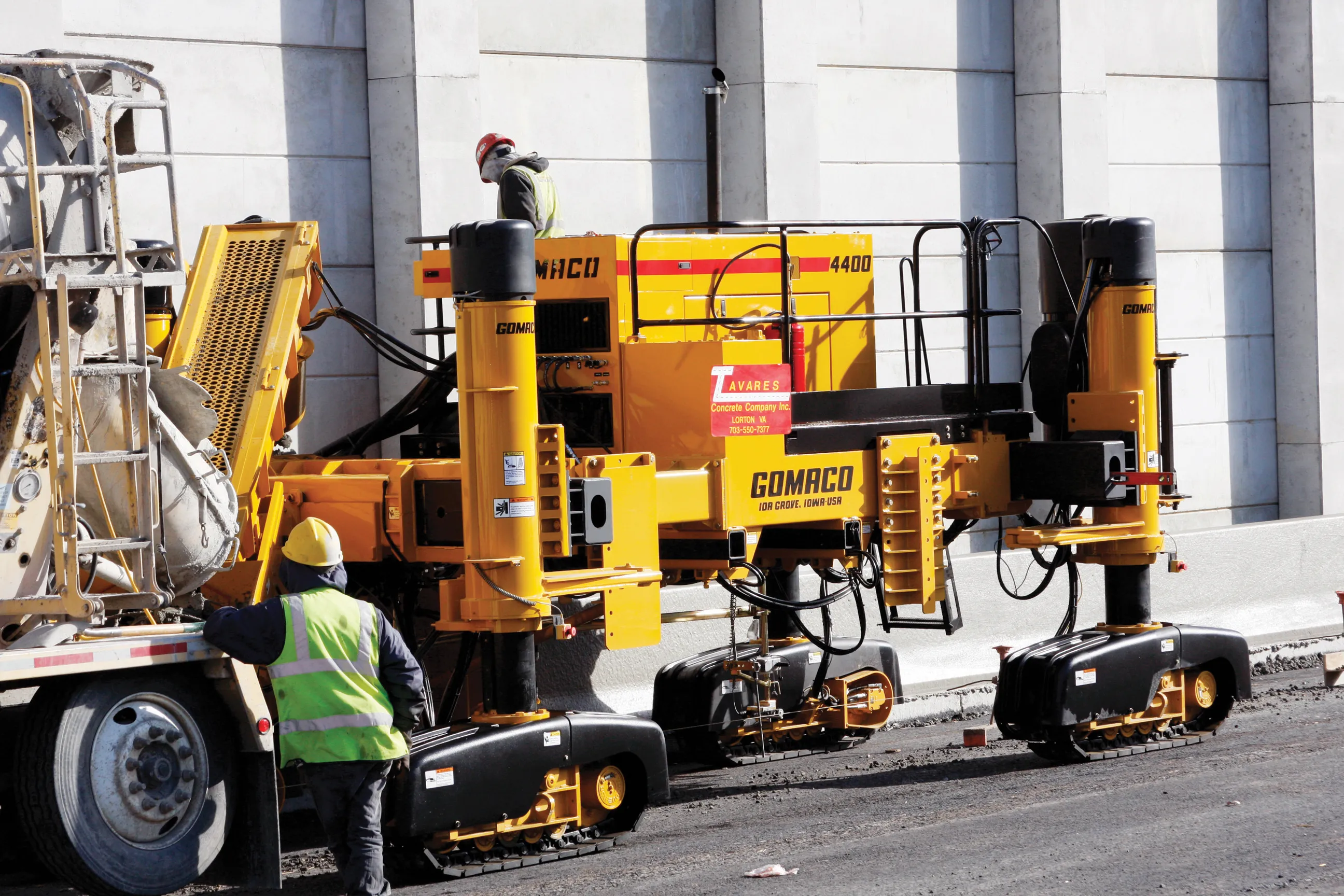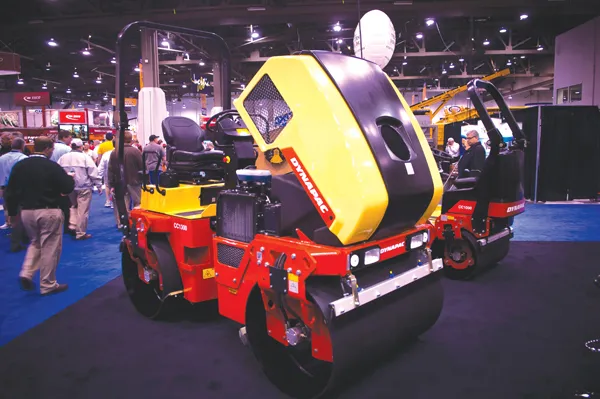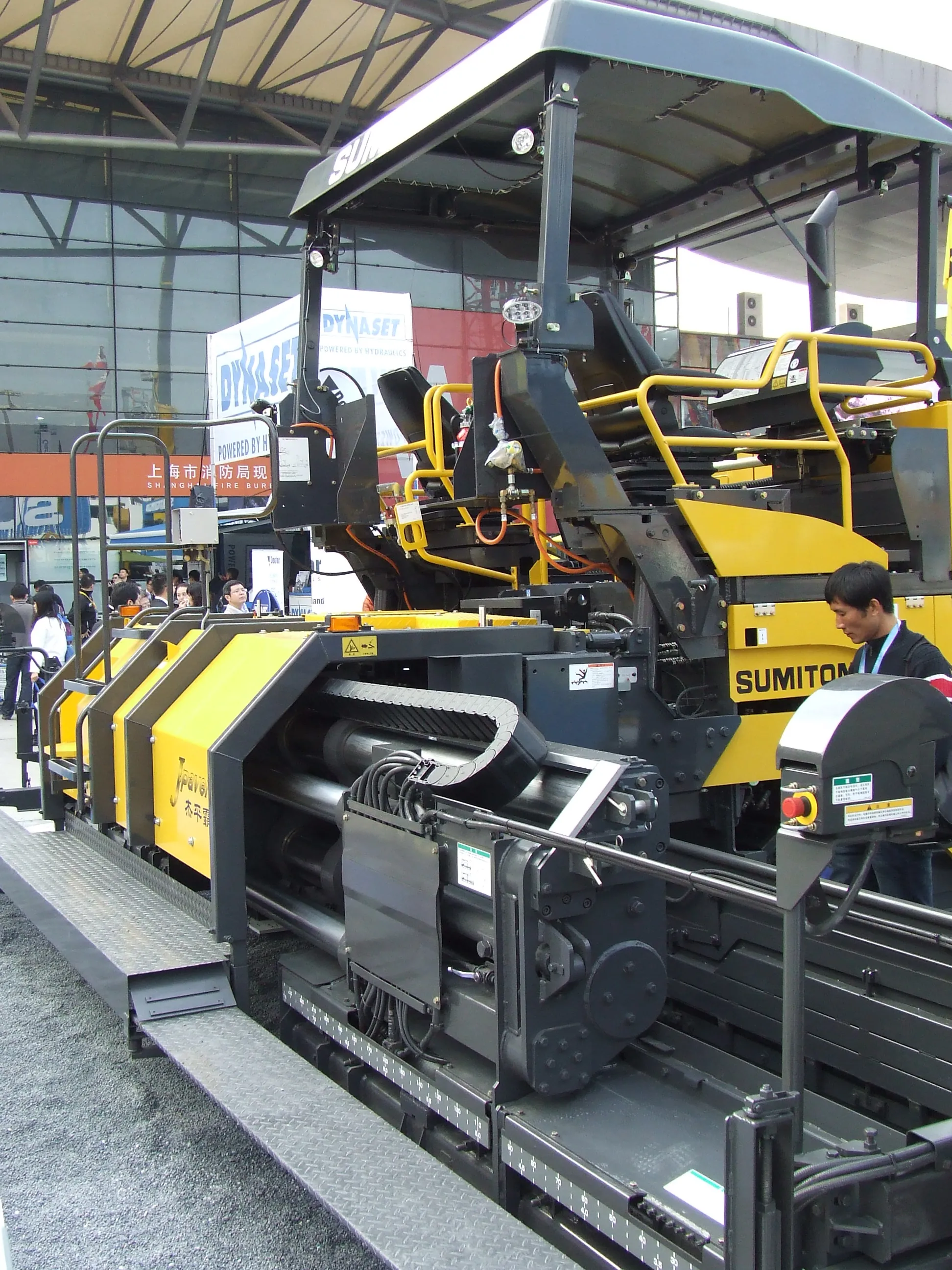Well known in the compaction field, BOMAG continues to raise its profile in the paving sector with the launch of another new machine, the BF300 paver. This model replaces the earlier Marini-developed BF331 and is said to be a combination of the best German and Italian engineering as well as sharing some features with the BF600 series launched by BOMAG during last year. Developed for the 7-8tonne class the BF300 is versatile and manoeuvrable and has a transport width of just 2.5m, even including its mounted
April 11, 2012
Read time: 2 mins
RSSWell known in the compaction field, 172 Bomag continues to raise its profile in the paving sector with the launch of another new machine, the BF300 paver. This model replaces the earlier 273 Marini-developed BF331 and is said to be a combination of the best German and Italian engineering as well as sharing some features with the BF600 series launched by BOMAG during last year. Developed for the 7-8tonne class the BF300 is versatile and manoeuvrable and has a transport width of just 2.5m, even including its mounted extensions and side plates. The BF300 offers the customer greater choice over the earlier wheeled and gas-heated BF331 model as this new design comes with options for wheels or tracks as well as gas or electric screed heating.
A key feature of the BF300 is its new screed, which can be extended hydraulically and offer widths from 1.7-3.4m and offers a maximum width of 4m using bolt-on side plates. With this highly efficient screed, pre-compaction of 88-91% can be achieved according to BOMAG. The electric version has moulded heat elements that are said to improve heat distribution as well as reduce heating rod corrosion and this screed can reach optimum operating temperatures from cold in just 20-30 minutes. The 4.8m3 capacity hopper features scraper belts, auger drives and bin flaps that are individually controllable. An Ecomode package is fitted to the engine management system that governs the1265 Kubota diesel powering the BF300 machines, helping to reduce fuel consumption and optimise performance. The highly efficient hydraulic system further reduces fuel consumption due in part to the use of ancillary pumps instead of flow dividers in the circuit. Other features of the BF300 include ease of operation, good visibility due to the low-profile engine mounting and side-slew operator platform and ease of operation.
A key feature of the BF300 is its new screed, which can be extended hydraulically and offer widths from 1.7-3.4m and offers a maximum width of 4m using bolt-on side plates. With this highly efficient screed, pre-compaction of 88-91% can be achieved according to BOMAG. The electric version has moulded heat elements that are said to improve heat distribution as well as reduce heating rod corrosion and this screed can reach optimum operating temperatures from cold in just 20-30 minutes. The 4.8m3 capacity hopper features scraper belts, auger drives and bin flaps that are individually controllable. An Ecomode package is fitted to the engine management system that governs the









